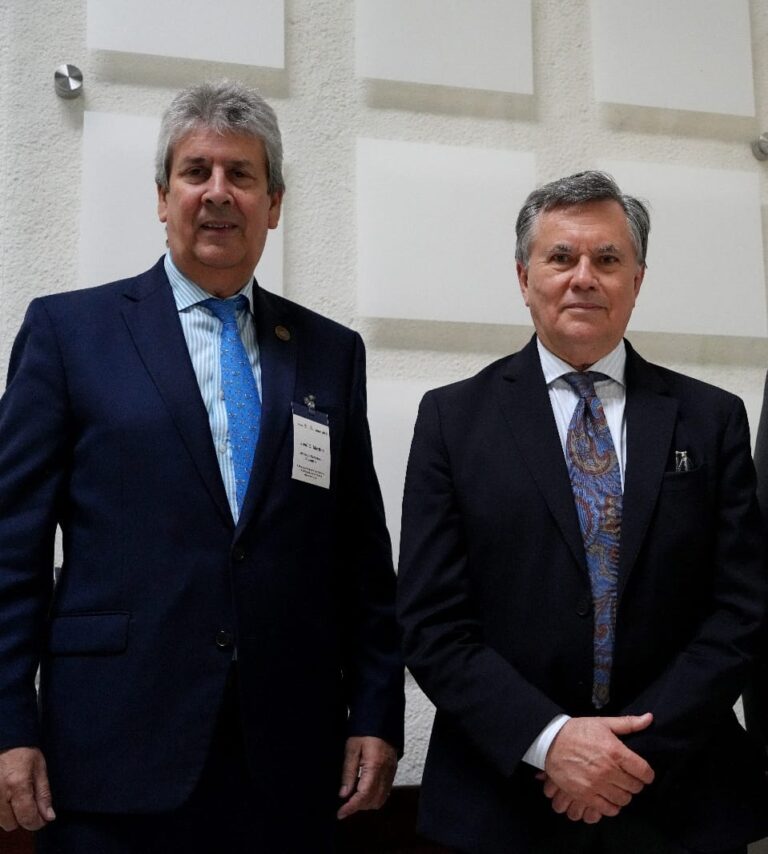According to Albert Sasson, given the rise in food prices worldwide and the impact it is having on food security and poverty, governments and cooperation agencies should attach greater attention to agriculture on their agendas.

San Jose, Costa Rica, April 18, 2011 (IICA). Speaking at a forum organized by the Inter-American Institute for Cooperation on
Agriculture (IICA), renowned scientist Albert Sasson said “There can be no peace in the world as long as there are one billion hungry people. Climate change and higher prices for oil and agricultural inputs are two causes of food insecurity, but the main cause is the fact that we no longer give agriculture the priority it deserves.”
Sasson, an international advisor in the field of biotechnology and a former Assistant Director General of UNESCO, added that, following the Green Revolution, which led to greater agricultural productivity thanks to the increased widespread use of water, fertilizers and pesticides, most believed that the global food situation was under control. As a result, little by little agriculture began to decline in importance on the agendas of governments; so much so that 0.3% of all international aid was earmarked for agricultural development.
However, following the international economic crisis of 2008, the need to produce sufficient, high-quality food at accessible prices to feed the world population is again on the agendas.
Sasson stated “Food is expensive and it will become more expensive day by day. The price of a barrel of crude oil is approaching US$110, a ton of corn brought US$320 recently in Chicago, more and more supermarkets are creating their own brands because they can no longer afford the ones they used to buy, and the number of poor rose from 800 million to 1 billion following the crisis. The answer lies in agriculture, if it is given the importance it deserves.”
In this regard, Victor M. Villalobos, the Director General of IICA, underscored the important role science plays in this agricultural scenario.
He said “When the continued development and future of the human race is threatened, science comes to the rescue. A case in point, despite its shortcomings, was the Green Revolution. Today, as it becomes clearer that traditional agricultural practices cannot guarantee food security, science again is coming to the rescue with different tools, including biotechnology.”
Good agronomy, biotechnology and political will
For Sasson, it will take a combination of good agronomy, biotechnology and, above all, political will, to overcome the crisis, arguing that “It is necessary to invest at least US$20 billion per year in agricultural research.”
Good agronomy will make it possible to restore the fertility of the soil, which is fatigued due to the overuse of fertilizers and pesticides.
Sasson said “Attention must also be paid to the sound use of water, applying techniques such as drip irrigation. Good agronomy will make it possible to use every drop of water wisely. When we speak of yields, we should no longer speak of tons per hectare, but rather units of water used to produce.”
The use of certified seeds is also of paramount importance to guarantee good yields.
These tools, which come from good agronomy, should be combined with other scientific tools to promote the competitive and sustainable agriculture needed in the world today. One of them, according to Sasson, is biotechnology.
Biotechnology will lead to the development of crops that are resistant to pests, floods and droughts, thus reducing crop losses, and of foods with more nutrients such as zinc, iron, Omega 3 and Omega 6. It will also be important in combating climate change and environmental degradation by creating crops that require the application of fewer agrochemicals. Today, cotton must be sprayed with pesticide some 12 times, while transgenic cotton requires only 2 to 4 sprayings, which translates into important cost savings, especially for small-scale farmers.
Better quality foods, with higher yields and lower production costs, translate into larger profits for farmers. Sasson noted, however, that the political will must exist to invest in technologies that reach small-scale farmers, and called on IICA to help pursue this goal.
This call was echoed by the Coordinator of the Institute’s Biotechnology and Biosafety Program, Ramon Lastra, who assured that IICA will continue to develop institutional capacities in this field, making the public aware of the value of biotechnology via science-based information and supporting the formulation of national biotechnology and biosafety policies that will encourage their safe use.
For more information, contact
rafael.trejos@iica.int











